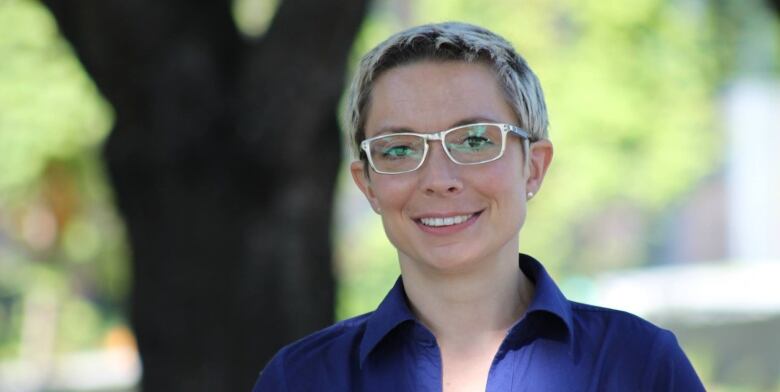What if we cured fentanyl addiction through genetics?
As U.S. company prepares to expand into Canada, one critic says testing is 'nowhere near' useful

Genetic testingand personalized medicine have gotten a lot of attention recently as potential solutions for myriad health concerns but could they help solve British Columbia's fentanyl crisis?
At least one U.S. company claims it can help, and it's aiming to expand its services into Canada this year.
Proove Biosciences, based in California, offers testing for genetic predisposition foropioid addiction and pain reception as part of what it refers to as "precision medicine."
"There's a genetic component because we know that addiction tends to run in the family," said Brian Meshkin, founder and CEO of the company.
"And we know that brain chemistry can be affected by it."
Trends involving #genetics & #bigdata will make the world better by improving healthcare decision making @proovebio https://t.co/7O2BxyVEAD
—@meshkinPain a common condition
Meshkin says the company'stests use data analytics to examine genetic, lifestyleand demographic information to accurately determine how sensitive a person is to pain.
It also tests for how they will respond to different types of pain medication, including if they're more likely tobecome addicted.
The tests are issued by doctors the FDA forbids direct-to-consumer health testing in the U.S. who are looking for more precise information before prescribing pain medication for their patients.
"Pain is the most prevalent condition in North America it's bigger than cancer, diabetes and heart disease combined," he said.
"It's the number one reason why people go to their primary care physician in the United States and Canada."

Currently, most doctors only assess their patients' pain by asking them to describe it on a sliding scale from one to 10 a measurement Meshkin says is too subjective.
And the risk of addiction is determined by a patient's medical history and self-disclosed risk factors.
The company makes about $300 from insurance companies for each test, and Meshkin says last year it produced more than 360,000 billable reports for the roughly 400 clinicians it has onboard.
And now Meshkin islooking to expand into Canada, where direct-to-consumer genetic testing for health issues isn't currently regulated.
Testing 'nowhere near' useful
Meshkin says the results of his tests are supported by peer-reviewed research.
But genetic counsellor Dr. Jehannine Austin says the science behind genetic testing for addiction is still "nowhere near"being useful.
"We often tend to look to genetics as something that's going to provide us with 'all the answers' and it really doesn't in terms of complex issues like addictions," Austinsaid.
"A genetic test is never going to tell us with absolute certainty who will and who won't develop problemswith addictions."

Austin, who specializes in mental health,says there are links between genetics and addiction. Butresearchers still don't have a full picture of all the variables that could make a person more vulnerable to substances like fentanyl.
Instead, she usesthe link between genes and addiction to offerher patients the comfort of knowing their addictions aren't just determined by a shortfall in their personality.
This, she explains, can help to break thecycle of self-blame, guilt, and substance abuse to reduce feelings of rejection and low self-worth.
Underlying mental health issues
From there, Austinoffers solutions to helpthem move forward.
"Often what we see if that people with addictions actually have underlying mental health issues," she said.
"So they might have depression, they might have anxiety. And the use of the substances is a way of self-medicating. It's their attempt to try to make themselves feel better, basically."
Austin says there are many advances being made that could help those addicted to opioidsfocus on other underlying reasons why someone may be predisposed to abuse it.
Looking forward to talking this afternoon about how rethinking delivery of genetic counseling in BC could=> all sorts of benefits! #GBCWS17
—@J9_Austin











_(720p).jpg)


 OFFICIAL HD MUSIC VIDEO.jpg)
.jpg)



























































































